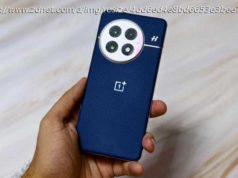New claims emerge over Facebook personal data spillages
More information is emerging over the ‘deep access‘ to user data that Facebook has provided to organisations around the world, including Amazon, Apple, BlackBerry, Samsung and Microsoft – and not just the likes of Cambridge Analytica.
According to the New York Times, Facebook struck partnerships with organisations around the world in a bid to glean more information about its users in mutually beneficial data-sharing deals that have been running for the past decade.
However, in what has been widely regarded as a breach of users‘ privacy, the scope of such deals was never disclosed and, in addition to potentially breaching data protection laws across the European Union, also raise questions over the company’s compliance with a 2011 consent decree with the US Federal Trade Commission.
„Facebook allowed the device companies access to the data of users‘ friends without their explicit consent, even after declaring that it would no longer share such information with outsiders. Some device makers could retrieve personal information even from users‘ friends who believed they had barred any sharing,“ the New York Times reported.
Although most of the data-sharing partnerships remain in place, Facebook has begun winding them down since April as pressure ratcheted up over the Cambridge Analytica affair, which acquired data on tens of millions of Facebook users via an app built by an academic researcher, effectively giving him the same deep access to Facebook user data for free.
The New York Times added, though, that Apple discontinued accessing Facebook data last September, BlackBerry never collected the data anyway, and Microsoft only used the data access to serve notifications and add friends contacts, but didn’t store user data.
Samsung, meanwhile, declined to comment, although it has had its own privacy scandals regarding its televisions that can’t help listening in to conversations in the home, not to mention bricktastic software updates .
Facebook vice president of product partnerships claimed that the company provided such ‘deep access‘ to user data at a time when it was struggling to keep up with user demand for mobile access. As such, it offered APIs to a number of companies – particularly mobile phone makers, which Microsoft and BlackBerry were at the time – so that they could „recreate Facebook-like experiences“ for users of their devices.
For BlackBerry, for example, it enabled the company to present Facebook messages and notifications in the BlackBerry Hub, the company’s communications aggregation utility that collected email, Skype messages, Twitter notifications and other social media communications.






